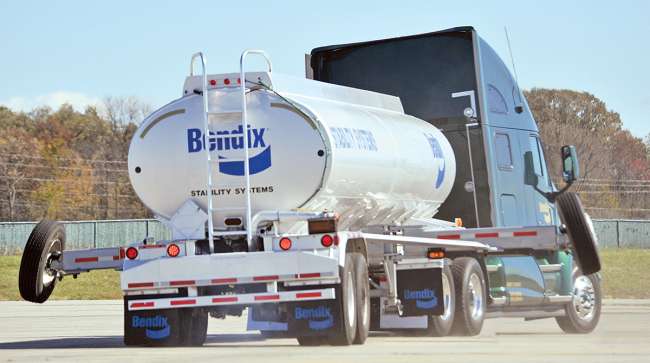ESC Mandate to Improve Safety, Fleets Say

The National Highway Traffic Safety Administration has said that by preventing crashes, electronic stability control will save lives, prevent property damage and reduce congestion. Fleets also are touting the benefits of ESC.
“The [return on investment] from ESC is almost instantaneous,” said Jim Boyd, manager of fleet technical services at Southeastern Freight Lines. “The number of vehicles that are accident damaged will drop off instantly,” he said. “Any fleet whose safety department did not have ESC and then got it will tell you immediately how valuable it was.”
In its final rule published in June 2015, NHTSA said, “Traffic tie-ups resulting from loss-of-control and rollover crashes also contribute to millions of dollars of lost productivity and excess energy consumption each year.”
Based on its effectiveness estimates, the final rule will prevent 1,424 to 1,759 crashes per year resulting in 505 to 649 fewer injuries and 40 to 49 fewer fatalities, NHTSA said. “This final rule will also result in significant monetary savings as a result of the prevention of property damage and travel delays.”
Ryan Simmons, product marketing manager at Meritor Wabco, compared the ESC mandate to the mandate of anti-lock braking systems in the ’90s.
“Most people were already using ABS when the government mandated it to make it official,” he said. “Many fleets are already using a variation of stability control.”
The government mandate of ESC will increase the technology’s penetration into the market, said Fred Andersky, director of government and industry affairs for Bendix.
“That will also help increase the use of other safety technologies, such as collision mitigation, because these are built on top of stability control,” he said. “Once stability control is standard, the cost of adding collision mitigation comes down, because it will no longer need to include the cost of adding stability control first.”
Groendyke Transport, which has a fleet of tanker trailers, first purchased tractors with roll stability systems in 2005.
“We quickly recognized the value of the technology in reducing rollover accidents,” said Brian Gigoux, Groendyke Transport’s vice president of equipment and maintenance. In 2009, Groendyke added electronic stability control.
“I don’t like for anything to be mandated,” Gigoux said, “but ESC is a technology that has proven itself with our fleet to pay significant dividends.”




